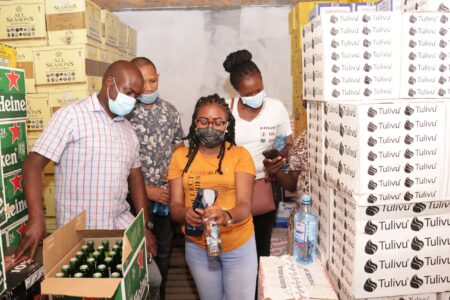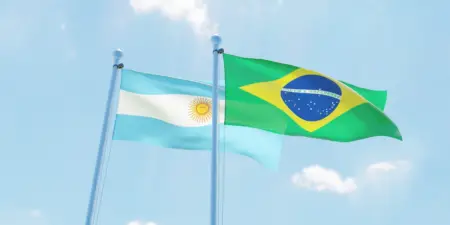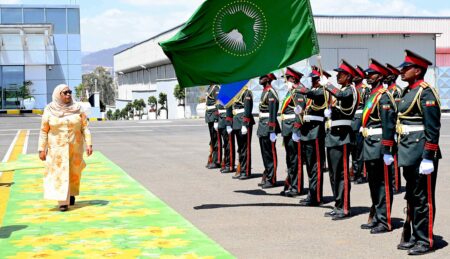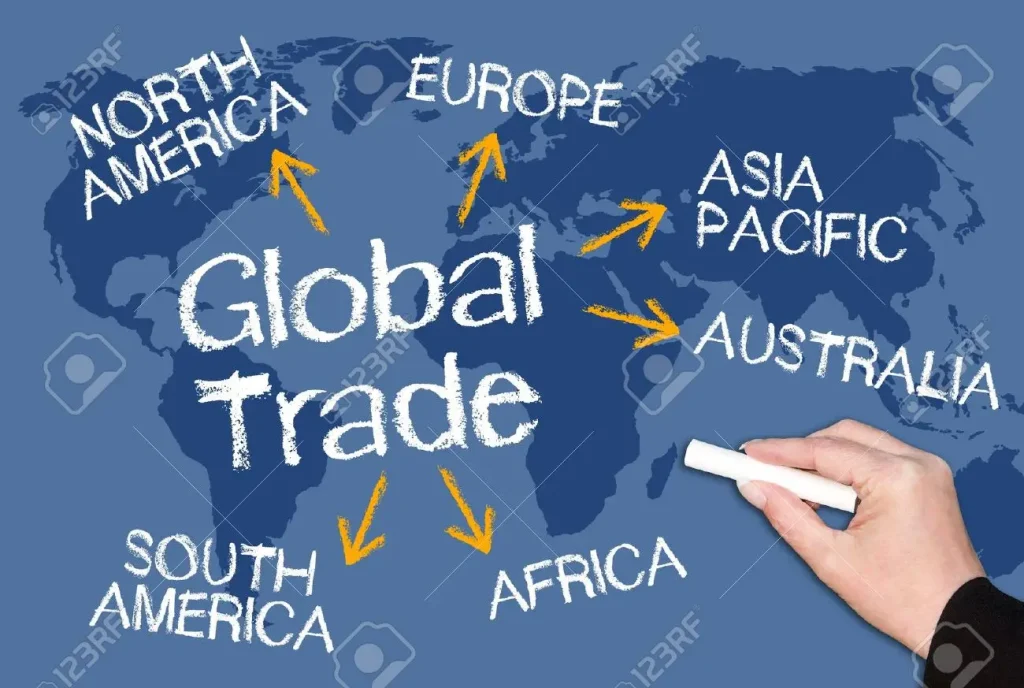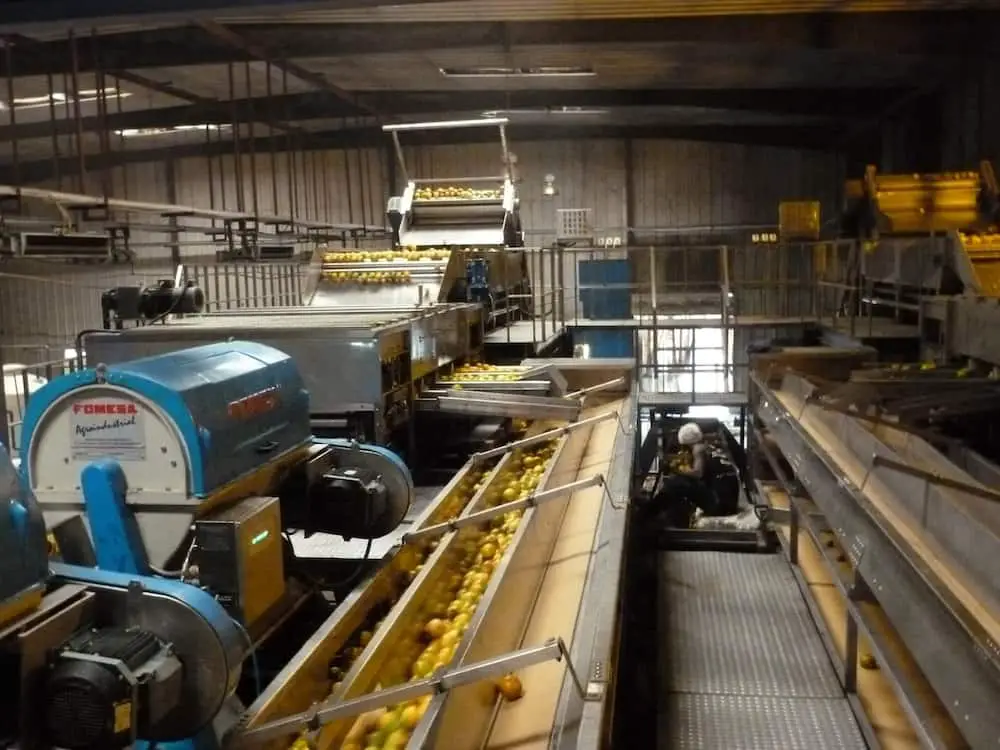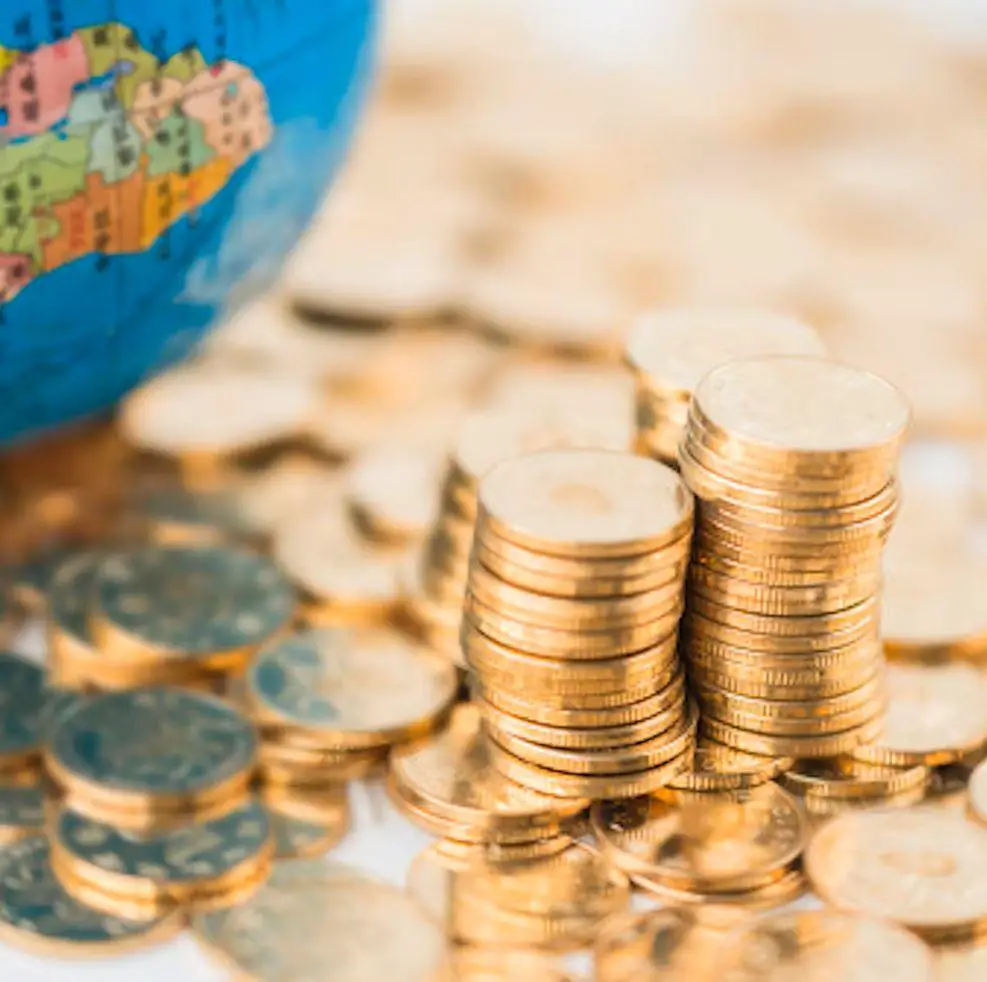- How South Africa plans to counter the negative impact of Trump tariffs sting
- Africa’s BPO industry enters AI era with 40% of tasks at risk by 2030
- Trump tariffs sting set to ruffle several economies in Africa
- Africa Energy Bank secures key backing from Nigeria, Angola and Ghana
- AIM Congress 2025 gets a boost as International Development Bank signs on as gold sponsor
- African energy: Opportunities and challenges presented by Russia’s investments
- Africa’s smart farming push—a revolution or a mirage?
- BRICS summit in Brazil to focus on global governance reform
Browsing: AfCFTA
- The country is considered East Africa’s strongest economy.
- It is among countries facing a huge challenge of illicit trade, estimated to be valued at above USD6.34 billion (Ksh800 billion).
- According to official government data, up to 70% of imported goods are counterfeits.
Kenya has a domestic market of over 50 million people and is among the leading economies in sub-Saharan Africa.
The country is considered East Africa’s strongest economy, with the region having a GDP of about USD163.4 billion (at purchasing power parity, about USD$473 billion), and the average GDP per capita is about USD941 (at purchasing power parity, $2,722).
In addition to the EAC market, investors in the partner States have access to other African markets such as COMESA, SADC and AfCFTA, as well as international markets through preferential trade arrangements.
The Common Market for Eastern and Southern Africa (COMESA) comprises 21 Member States with a population of 560 …
The two south American nations are exploring methods to increase bilateral commerce and wean themselves off the mighty US currency. Its announcement has been widely criticized since they are not a natural fit for a single currency. This is due to one country’s relative economic prosperity and the other’s economic upheaval. This experience between Brazil and Argentina is instructive and illustrative for African nations with comparable aspirations to develop a single currency.
- Brazil and Argentina announced early last month that they would create a joint currency to increase trade and political relations.
- Similarly Africa has expressed the same ambitions at different times. The advent of AfCFTA gives further impetus to the concept that Brazil and Argentina has reignited.
- Brazil and Argentina first came up with the idea of a joint currency in the 1980s but it never took off because economic fundamentals.
- The joint currency experiment by Brazil and Argentina
- The move makes Tanzania among the first seven African countries to start making the best of the single African market.
- Tanzania plans to export no less than 10 different products under the AfCFTA deal starting with coffee and marble.
- The AfCFTA Secretary General is confident that the deal will result in higher paying jobs and also sees the deal favouring women who are expected to get the larger portion of wage gains.
The African Continental Free Trade Area (AfCFTA) is at the centre of discussion again as African Heads of State and Government meet in Addis Ababa, Ethiopia for two days to iron out the complexities of the Africa-wide trade zone.
The focus of the summit is on the intra-Africa trade going by the theme; The Year of AfCFTA: ‘Acceleration of the African Continental Free Trade Area Implementation.’
At the 36th ordinary Session of the AU Assembly, President Samia Suluhu …
The rapid snowballing of Africa’s rare earths metal production is set to become the world’s alternative source in 2023 and beyond, as global demand surges and world powers seek to wean off their dependence on China amid a new geopolitical multipolar world order. Africa’s vast reserves of rare earth metals have come under the radar of world powers fueled by the devastation emanating from the climate change crisis and calls for a drastic reduction in the growth and operations of extractive industries.
Furthermore, the race to net-zero emissions compounded by increased climate-induced natural disasters has intensified the green energy transition, instigating another scramble for Africa’s resources rare earth metals are at the heart of the race to green energy as well as providing opportunities for massive economic growth by injecting much-needed revenues to finance core socio-economic objectives in the continent.
Rare earth elements (REEs) refers to a group of 17 …
There appears to be a consensus that the world is finally turning its back on the US dollar. There are simmering shifts within the global monetary system. The shift becomes ever more apparent, best described as de-dollarisation.
The world is searching for alternatives to the US dollar, finding them more often. Thus, moving away from the dollar can no longer be stopped. For instance, early this year, Indonesia reiterated it would promote local currency settlement (LCS) in cross-border trade and investment to reduce dependence on the US dollar.…
AfCFTA’s successful implementation can boost trade and promote Africa’s economic recovery and growth. The AfCFTA is the world’s most extensive free trade area in terms of size and number of nations, with a combined GDP of around $3.4 trillion.
Increased integration would improve incomes, generate employment, stimulate investment, and make establishing regional supply chains easier. In comparison to Africa’s external trade, intra-African trade remains tiny. In 2020, just 18 per cent of exports went to other African nations.…
With African nations in desperate need of economic boosts, reinventing the continent’s pharmaceutical “wheel” as a contributor to development has become critical. This crucial venture requires public and private participation and, of course, the willingness of the West’s Big Pharma!
Most Africans lack the means to seek qualified healthcare providers for quality medication. People turn to self-help and alternative medicine to avoid medical expenditures, which are often out of reach. With less than 400 drug manufacturers to cater to the more than 1.3 billion people on the continent, millions of Africans die or suffer from protracted illnesses without consistent access to even the most essential medicines. Widespread ill health can trap people in poverty, as healthier people are more productive.
The pandemic’s effects have exacerbated Africa’s healthcare crisis in the last two years. The situation has captured the attention of investors who noted the gap between supply and demand in …
African countries looking to anchor their currencies on either gold, or a combination of gold, precious metals, and other minerals would need to start with legislation which would make it legal for the governments of those countries to redeem paper currency with either those minerals or a derivative of those minerals.
Zimbabwe in late August began an initiative where it sold actual gold coins to its citizens which had been minted by that country’s central bank. This move was initiated to halt the slide of the currency on the parallel and official markets. This county’s policy so far has been successful in slowing down the trend of inflation which had begun to run amok.
It would be remiss to attribute the slowdown inflation to the gold coins. The country dramatically tightened its monetary policy by increasing interest rates to over 200 per cent in May 2022 and temporarily banned commercial …
Ghana competes in the global economy primarily using natural resources. Other than the usual exports of cocoa, gold, lumber, and crude oil, Ghana has a competitive advantage in numerous product categories. Increasing the proportion of high-income commodities in the export basket hastens economic transition.
The opportunity is providing better, economically advantageous items to regional and worldwide markets. Cocoa processing, wood processing, aluminium products, palm oil, food and agro-processing, and fish processing are examples of manufacturing sub-sectors that fit these two requirements.
Manufacturing subsectors that capture considerable proportions of manufacturing value-added, such as food and drinks, chemicals, and textiles, have significant technology, knowledge, and skills inherent in them. These assets can be used to produce additional goods within the sub-sector or even outside of it. It is also easier to go up the value chain after you have mastered relevant technologies and markets.…
To have only 3 of the eligible countries in Africa signing up for the initiative is tragic especially given the global economic environment of the world presently. A crippling sovereign crisis is looming on the African horizon. Catalysts of the crisis include a strong United States dollar which has been resurgent during the year.
Debt on the on the books of most African countries is denominated in the greenback and its strength will have an adverse impact on their public finances and their ability to service their loan obligations timeously.
This problem is further compounded by rising interest rates which are certain to make the cost of debt that much more expensive for countries that already cannot afford to be overextended financially.
The debt of most African countries is in the hands of private creditors who in recent time have become as important as their multilateral counterparts. These private creditors …





